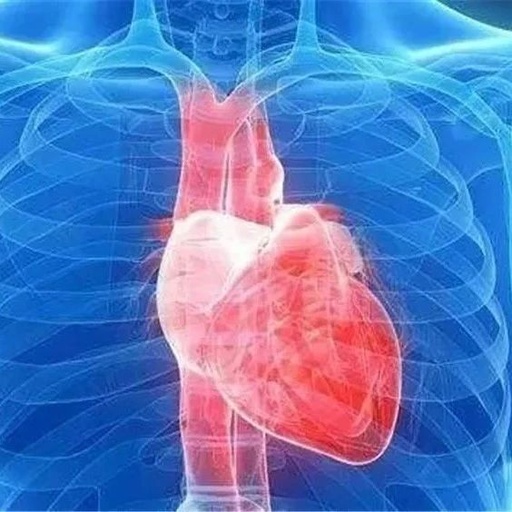There is an old saying: “All diseases arise from cold,” meaning that many diseases are significantly related to the presence of coldness in the body. In Traditional Chinese Medicine (TCM), cold evil is considered a type of yin evil that often harms yang energy. Yang energy is akin to the sun; without it, the body loses its metabolic vitality, energy, and warmth. Furthermore, cold evil can obstruct the flow of yang energy, leading to symptoms such as poor blood circulation, muscle pain, and joint spasms.
01
The TCM Theory of “Qi Circulation”
Currently, it is estimated that 80-90% of patients suffer from yang deficiency.
In the Qing Dynasty, the renowned physician Huang Yuanyu proposed the “Qi Circulation” theory in his work “Si Sheng Xin Yuan,” which states that kidney water warms and generates liver wood, liver wood generates heart fire, heart fire generates spleen earth, spleen earth generates lung metal, and lung metal transforms to produce kidney essence.
With the spleen and stomach as the axis, the circular movement of qi and blood in the human body is a tightly interconnected system. The qi of any organ is directly related to other organs. If one link experiences cold stagnation, it can trigger a butterfly effect of chain reactions. If cold lingers in the body for an extended period, the harm can be significant.
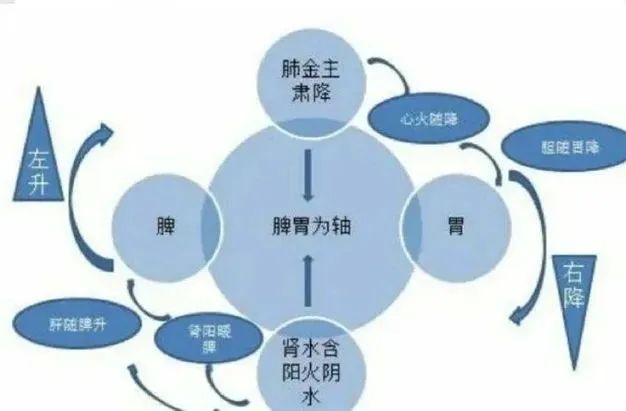
Many people do not know whether they are cold or hot. Often, they feel cold at times and hot at others. Each of us experiences cold and heat, and all five organs have distinctions between cold and heat.
Today, let us explore this topic together and examine the manifestations of cold in the heart, lungs, spleen, liver, and kidneys. When symptoms appear in ourselves or those around us, we can clearly understand which organ requires adjustment.
02
Manifestations of Cold in the Heart
The heart is the sovereign organ. When the heart is cold, the body becomes listless, and there is a lack of interest in any activity.
Our body’s yang energy has two sources: heart yang and kidney yang.
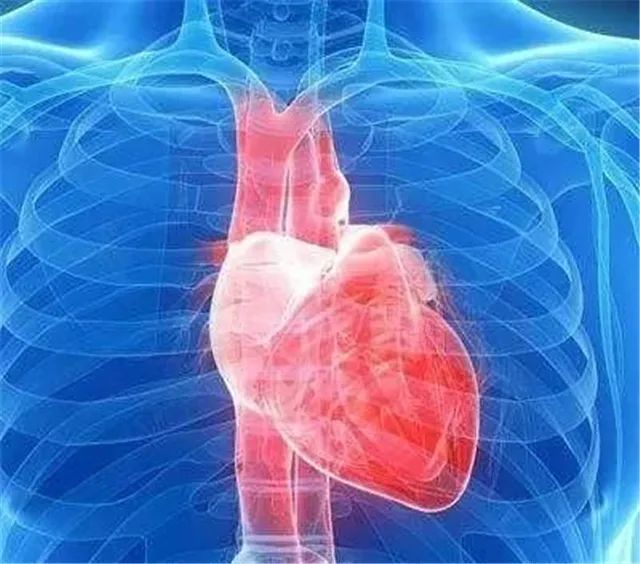
Heart yang is like the sun; when the heart is cold, it is as if the sun has lost its brilliance, leaving the sky overcast and the earth lifeless, causing all things to wither.
If the heart is cold, the complexion will be pale as snow, as the heart’s essence manifests in the face. The lips may turn blue or purple, and various spots may appear on the body, face, tongue, hands, and legs, indicating poor blood circulation. Unexplained bruises may appear easily, and the heart may beat slowly, leading to a feeling of heaviness in the chest and shortness of breath, often accompanied by a desire to take deep breaths. Cold exposure may trigger heart pain.
Those with cold in the heart may also experience cold sweats, as sweat is the fluid of the heart. Insufficient heart yang cannot retain sweat, leading to excessive sweating.
Individuals with cold in the heart often lack desires and motivation, feeling aimless and indifferent, sometimes even losing their appetite. Therefore, those with depression must be treated from the heart, strengthening their heart yang and dispelling the piercing cold within.
Cold Blood Deficiency in the Heart:
In TCM, the heart governs the entire blood system, managing the blood flow throughout the body, relying on heart qi to circulate blood and nourish the body. The movement of heart qi requires the encouragement of heart yang. When cold evil invades the heart meridians, it can easily lead to insufficient heart yang, causing heart qi to stagnate, resulting in blood vessel constriction and sluggish blood flow, leading to blood deficiency. This is why it is said that the heart has cold blood deficiency. Typically, individuals with this condition may experience palpitations, facial spots, cold hands and feet, and chest tightness. For this condition, we can refer to a formula called Xin Bao Wan.
03
Manifestations of Cold in the Lungs
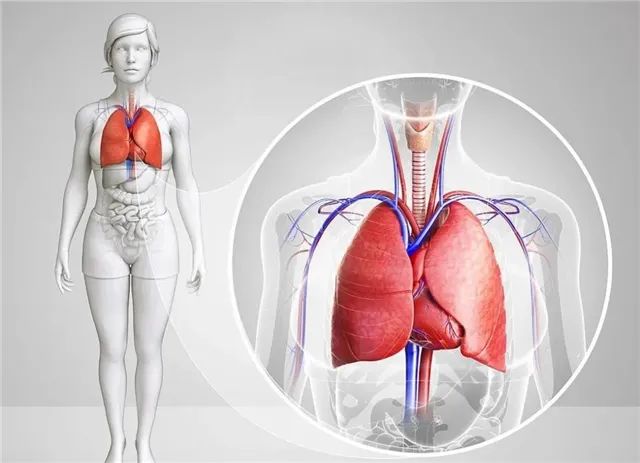
The lungs are the ministerial organ, governing the hundred vessels. When the lungs are cold, the bridge connecting the heart and the vessels collapses, leading to blockages in the entire meridian system.
If the lungs are cold, it can cause nasal congestion.
Cold in the lungs leads to clear nasal discharge, and even a slight chill can cause a runny nose. This condition makes individuals susceptible to wind-cold colds due to insufficient defensive qi.
Without yang energy to disperse the fluids in the lungs, they can congeal into phlegm, which is white in color and may lead to persistent coughing and wheezing, especially at night, with a lot of white phlegm, often exacerbated in autumn and winter. We can refer to Xiao Qing Long Tang for this condition.
Those with lung cold often experience qi deficiency, feeling weak and lacking energy, often wanting to lie down, as the lungs govern the body’s qi. They do not sweat easily, as the lungs control the skin and hair; insufficient lung dispersing ability leads to little sweating, even in summer.
Individuals with lung cold may also suffer from constipation, characterized by difficult and thin stools. They should avoid cold drinks, as cold can harm the lungs.
04
Manifestations of Cold in the Spleen
The spleen requires warmth to function properly; when it is cold, it cannot perform its duties. The spleen and stomach are the center of the five organs and six bowels; if the spleen and stomach do not function, the entire body will face issues.
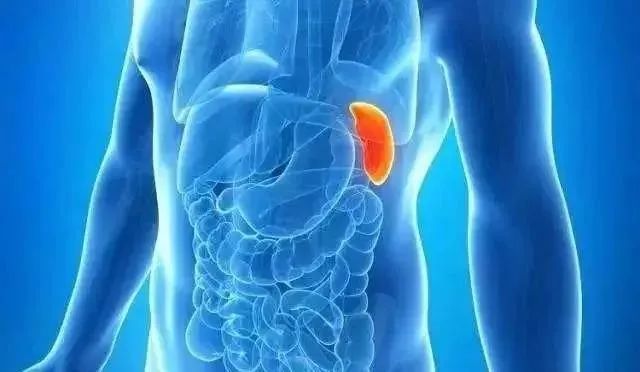
Many people have a weak spleen and strong stomach, leading to diarrhea regardless of what they eat, and one important reason for this is cold in the spleen. The spleen prefers warmth and dislikes cold.
If the spleen is cold, it will accumulate dampness, as the spleen is the source of dampness. Cold in the spleen prevents the transformation of dampness, leading to an overflow of dampness in the body. Therefore, to eliminate dampness, one must warm and strengthen the spleen.
When the spleen is cold, the complexion may appear sallow, and food may accumulate, leading to weight gain even with little food intake.
Cold in the spleen may cause excessive salivation, with drooling during sleep, or dry mouth without relief from drinking. Frequent diarrhea may occur, especially after consuming cold or raw foods, and abdominal bloating is often more pronounced in the afternoon when yang energy declines. We can refer to Li Zhong Tang for this condition.
The spleen governs the muscles; individuals with cold in the spleen often experience weakness in their limbs, and severe cases may develop myasthenia gravis.
05
Manifestations of Cold in the Liver
The liver is the general organ. The liver is yin in nature but uses yang; thus, we often say the liver has abundant fire and rarely mention it being cold. When the liver is cold, it is a serious condition.
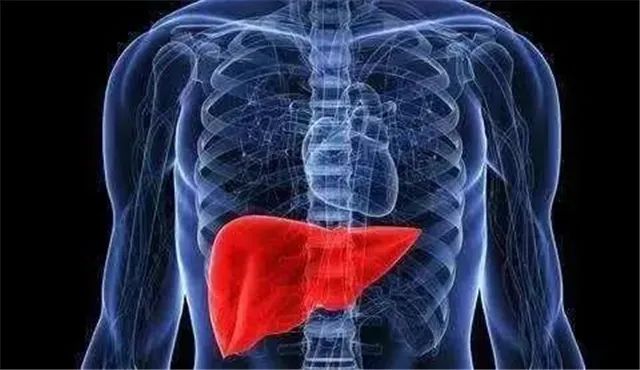
Cold in the liver may cause abdominal pain, which is not due to intestinal issues but rather a blockage in the liver meridian, resulting in a dull ache. Cold in the liver can also lead to joint pain, which is not due to bone issues but rather problems with the tendons that connect the joints.
Individuals with cold in the liver may have pale nails, and sometimes the nails may be indented.
Those with cold in the liver often lack temper and may feel timid, leading to a bland and passionless life.
The liver has cold and contracted tendons:
The liver governs the tendons. When liver qi is deficient and righteous qi is depleted, cold evil can easily invade the tendons governed by the liver, leading to stagnation of qi and blood in the tendons. Consequently, liver blood deficiency may occur, failing to nourish the tendons, resulting in contraction. Individuals with this condition may experience numbness in the hands and feet, leg cramps, pain in the sides, and joint stiffness. For this condition, we can refer to Tian Tai Wu Yao San.
06
Manifestations of Cold in the Kidneys
The kidneys are the foundation of congenital essence. When the kidneys are cold, the entire body feels cold, leading to numerous diseases.
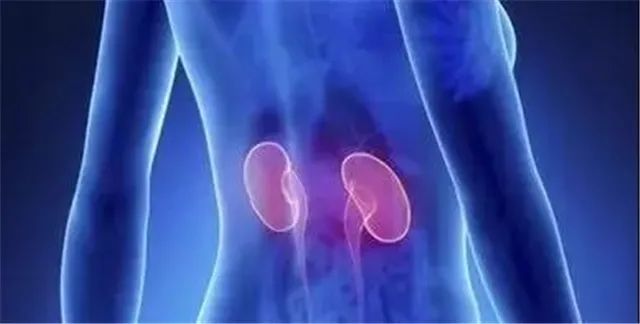
If heart yang is like the sun in the sky, then kidney yang is the heat energy hidden deep within the earth.
The kidneys store essence, which transforms into two forces: one is kidney yin, and the other is kidney yang.
Cold in the kidneys first manifests as an overall sensitivity to cold, not just cold hands and feet. In winter, individuals find it difficult to cope, while summer feels comfortable. They often wear more clothing than others. Frequent lower back pain, characterized by a cold sensation, is common, especially sensitive to cold winds. Using a hot water bottle provides significant relief, as the lower back is the residence of the kidneys.
Individuals with kidney cold may experience frequent urination, which is not characterized by small amounts of urine but rather a large volume, clear as water, especially at night. The kidneys govern urination. Similarly, they may experience “five o’clock diarrhea,” waking up at around five in the morning to have diarrhea.
Those with kidney cold are prone to edema, especially below the waist, as the water in the bladder requires kidney yang for proper utilization or excretion. Many chronic nephritis patients suffer from spleen and kidney yang deficiency.
Cold Essence Decline in the Kidneys:The kidneys govern essence. When cold invades the kidneys, it leads to insufficient yang energy, causing the kidney yang to fail to consolidate and retain essence. This results in gradual loss and decline of essence. When kidney yang is deficient and essence declines, the body is prone to cold sensitivity, low vitality, lower back pain, forgetfulness, hair loss, and greying. TCM also believes that the kidneys govern the bones; when excess cold in the kidneys prevents the retention of essence, the bones lose nourishment, making it easy for cold evil to infiltrate the joints, causing joint pain, cervical spondylosis, and lumbar spondylosis. For this condition, we can refer to You Gui Wan.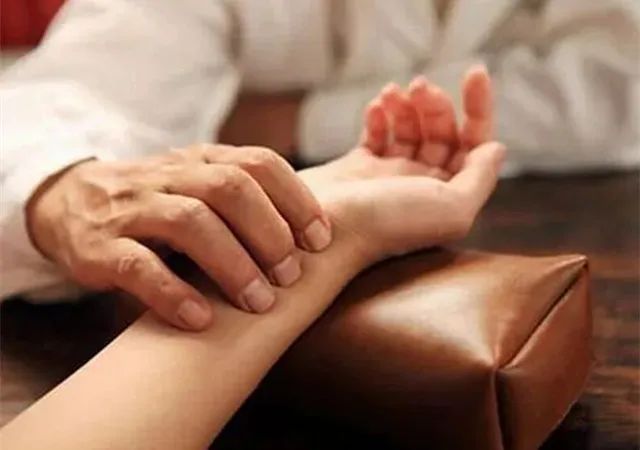
TCM Approaches to Regulate the Five Organs and Expel Cold
When the five organs have cold energy, TCM therapeutic techniques can be employed to adjust the organs and expel cold. However, this is only one aspect. The “Huang Di Nei Jing” emphasizes the importance of maintaining a balanced diet and regular lifestyle, which is crucial. In today’s fast-paced life, few people can adhere to such a disciplined routine.
All diseases arise from cold; protecting the body’s righteous qi and preventing cold evil from invading is essential to achieving the ultimate goal of health preservation: “Harmony of Body and Spirit.”

